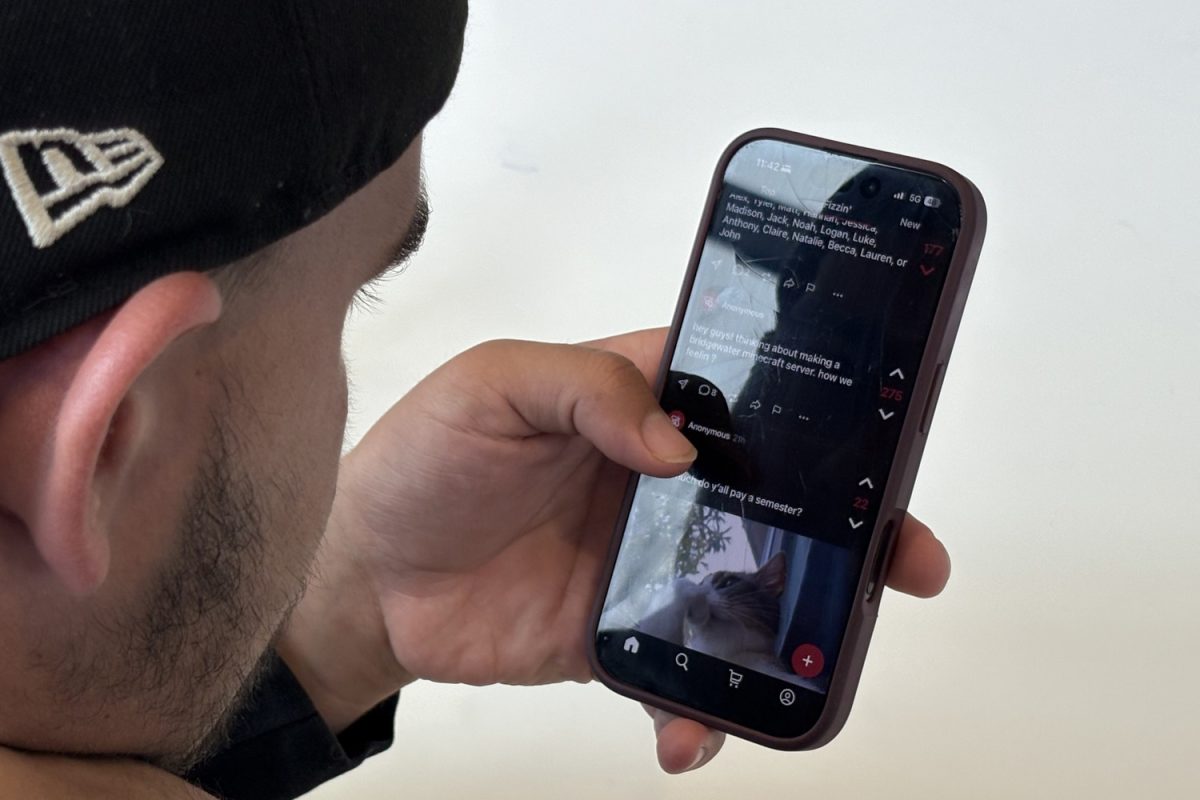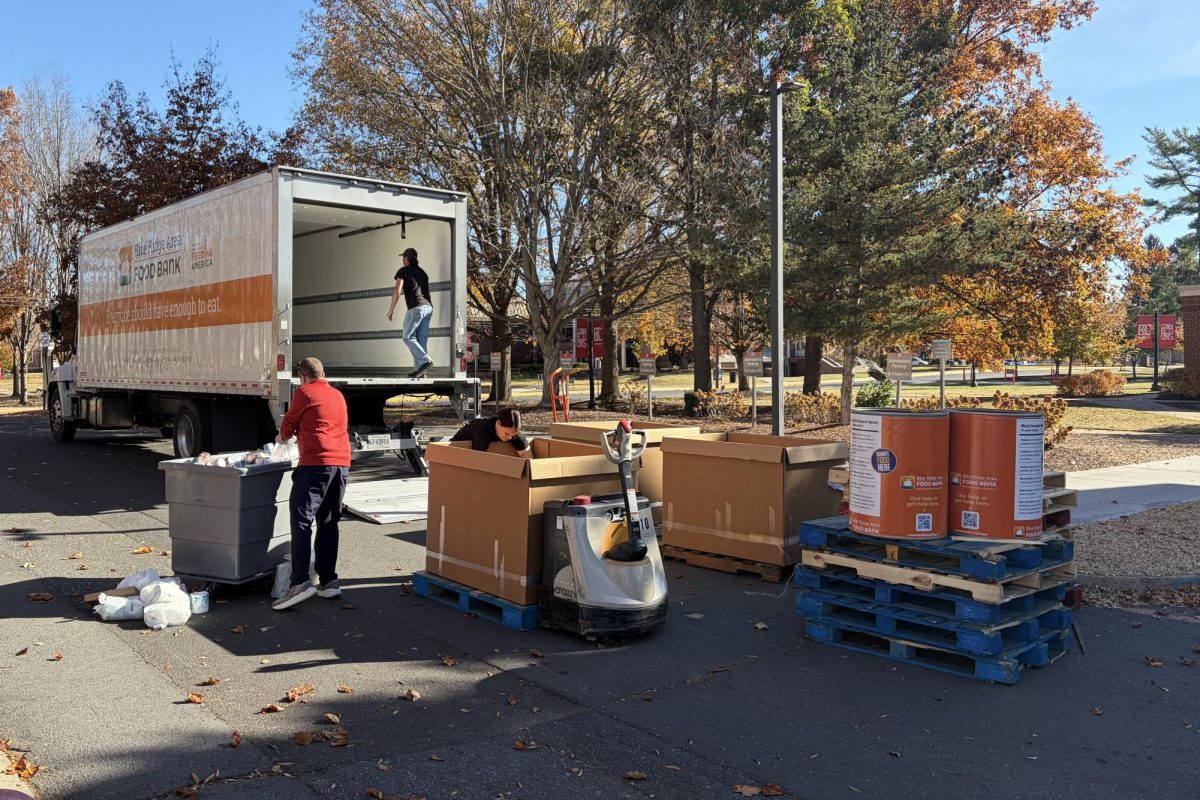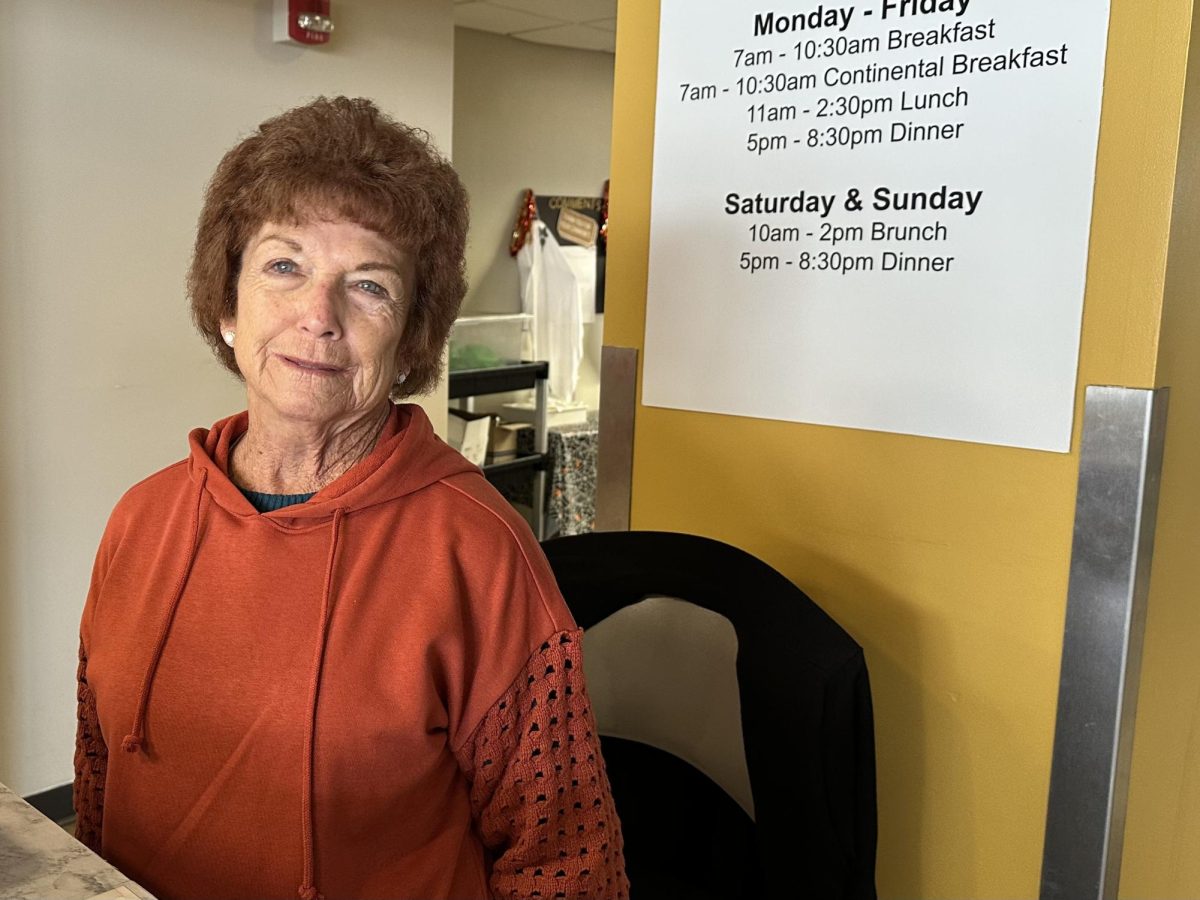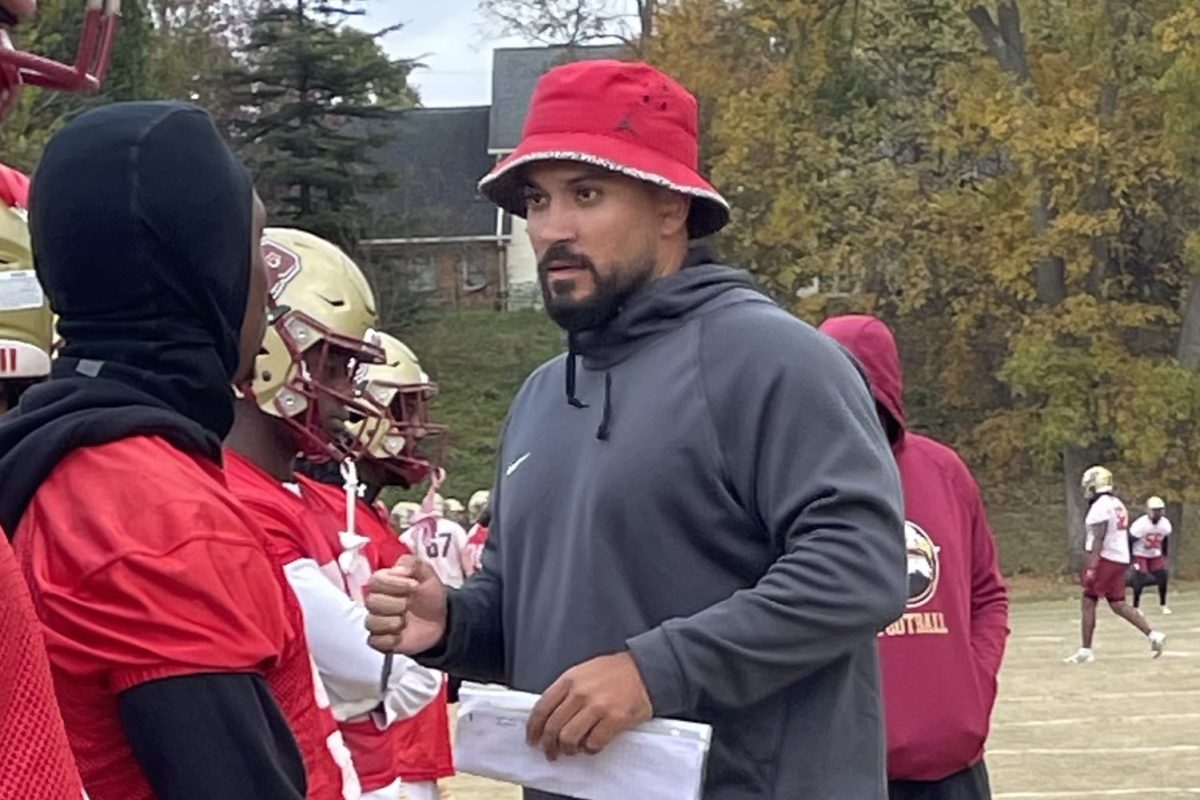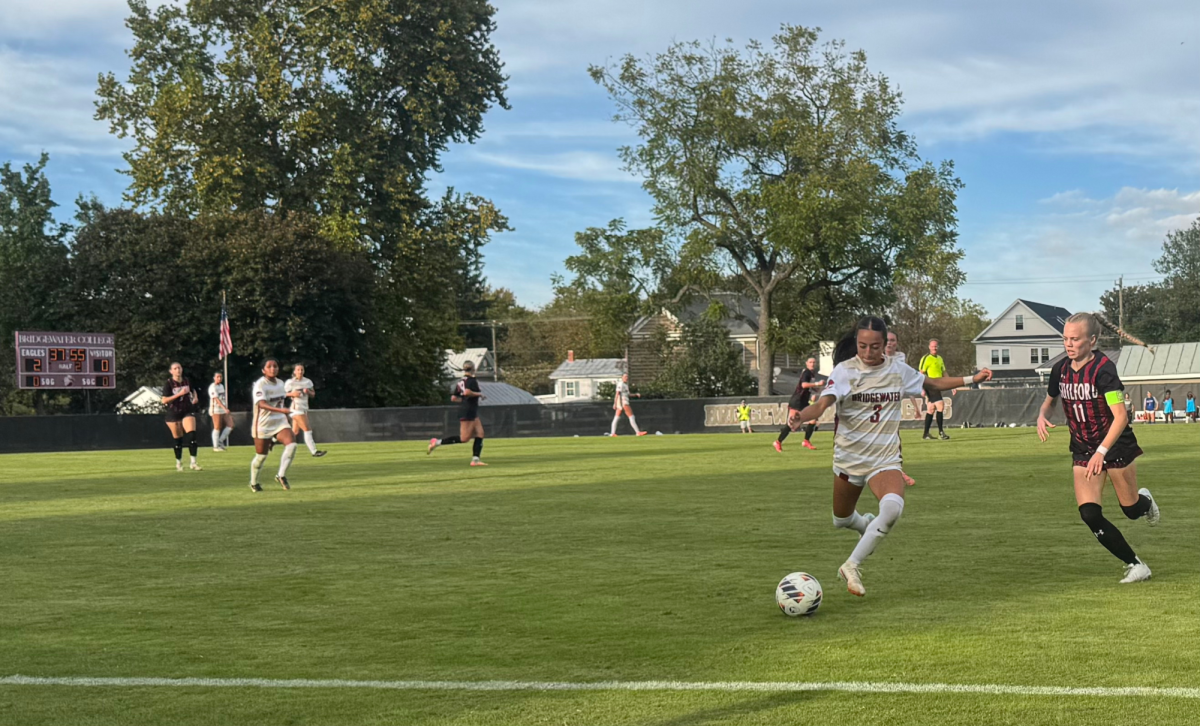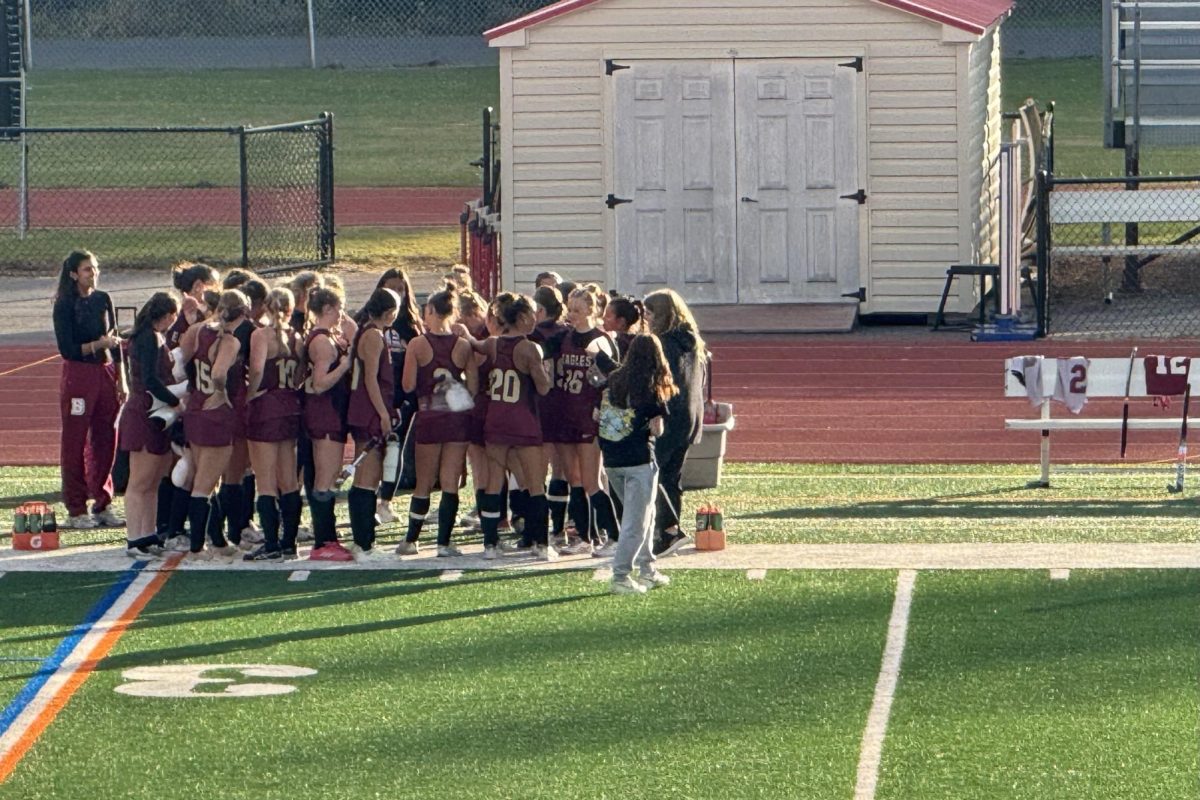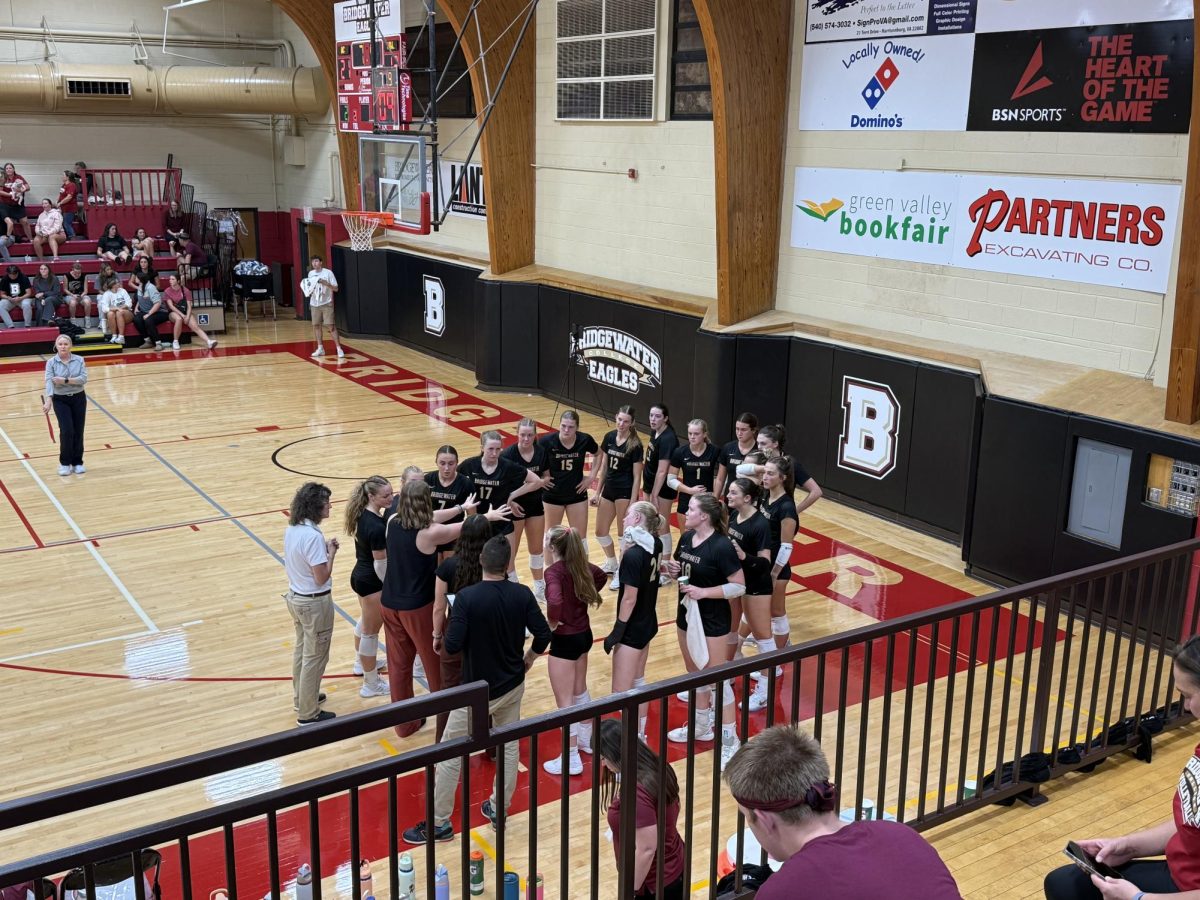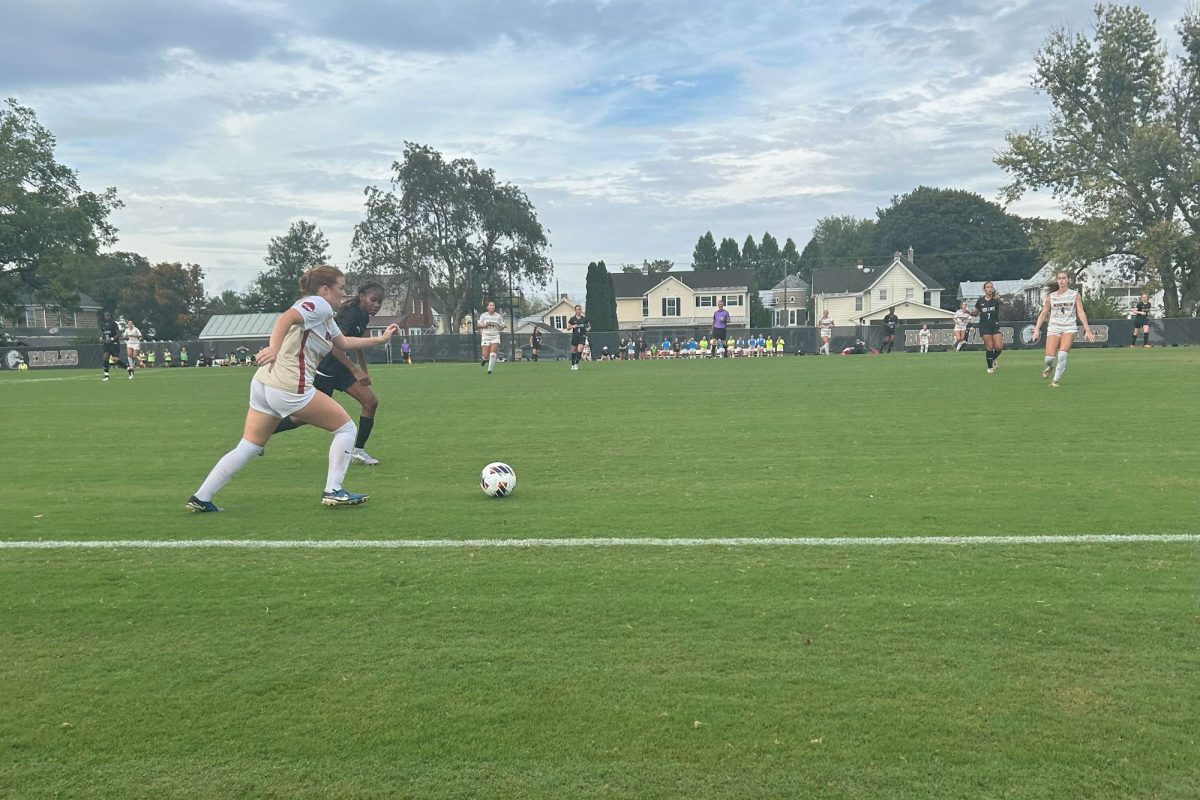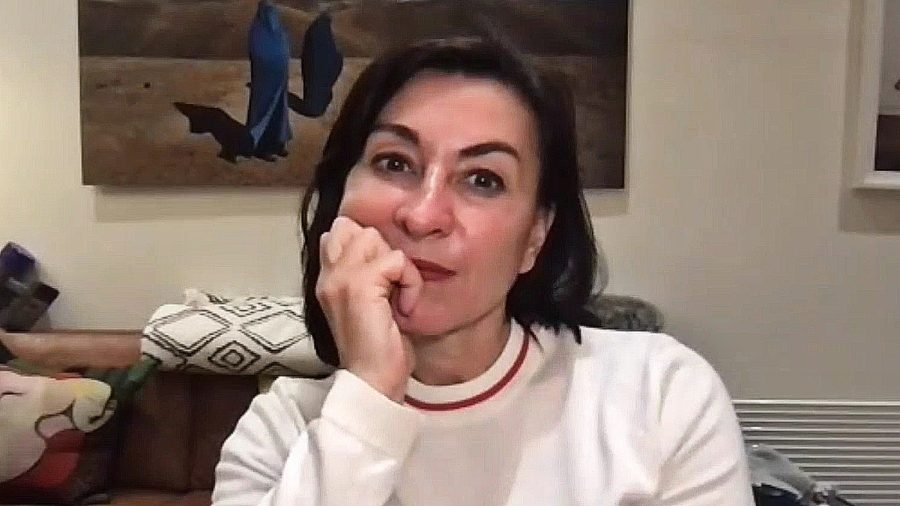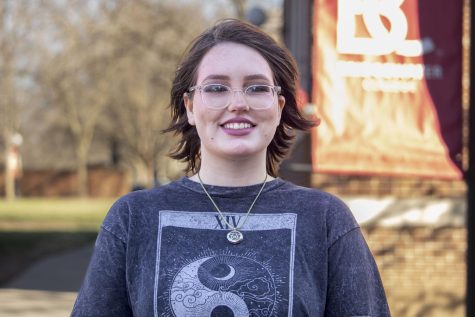Leaving Your Comfort Zone: The Importance of Art
Lynsey Addario Lectures Via Zoom at Bridgewater College
Lynsey Addario is shown giving a lecture via Zoom to the community of Bridgewater College. One of the main focuses of the lecture on March 29 was the women of Afghanistan under the Taliban rule.
April 1, 2022
Bridgewater, Va.- On Tuesday, March 29 at 5 p.m. Lynsey Addario spoke at a virtual event on Zoom for the Bridgewater College community. The event focused on how to understand parts of society through various art forms that allow individuals to break out of their comfort zones. The endowed lecture was sponsored by the W. Harold Row Symposium.
Addario is a photojournalist who often works for The New York Times, National Geographic and Time Magazine. For Addario, art plays a huge role in society and how the world is viewed. Her primary focus is on addressing major conflicts and humanitarian crises from the Eastern Hemisphere.
“Her recent work has covered the Coronavirus pandemic, Syrian refugee crisis, the Isis advance in Iraq, civil war in south Sedan, and of course over the past six weeks, she has done extraordinary and moving work covering the war in Ukraine,” said David Bushman, the president of Bridgewater College.
Addario was born in 1973 and was a young adult during the disaster that was 9/11, which inspired her to look into international affairs – specifically the Middle East and how it was run under the Taliban. The event also influenced her to write her first book titled, “It’s What I Do,” which discusses her life as a fresh photojournalist after 9/11.
Addario has dedicated her life to exposing the treatment of women, families and innocent civilians under authoritative-like controls and to showing the world through her photography.
During the lecture, Addario discussed many of the times she put herself on the frontlines to obtain the truth so that she can show the dangers and travasties of war and the mistreatment of women in these countries.
Addario discussed her time in Afghanistan with the Taliban, the Egyptian uprising, the Libyan uprising, Covid-19 and its effects, and even current conflicts such as the Ukraine-Russian War.
During the Libyan uprising, four journalists from The New York Times covered the story, one being Addario. All four journalists went missing and were held captive by Kedafy soldiers.
The Khadafy soldiers took over the city and the driver for the journalists was attempting to flee with them as the situation became too dangerous. The driver accidentally drove through the Khadafy checklist point. Addario’s three male journalists were pulled out of the vehicle at gunpoint.
Addario attempted to crawl out of the car and hide. She was caught and all four were restrained. Their hands and feet were tied by the laces of their shoes and the soldiers prepared to execute them.
The commander decided not to kill them due to their American status. However, the soldiers did not really let them go, but rather put them in the line of fire for their own amusement, beat them and sexually assaulted Addario as she was the only female. They were placed in a private prison and after six days they were finally released.
“We as photographers had to move forward with them [soldiers] because we cannot do our job remotely. So often photojournalists of war have one of the most dangerous jobs,” said Addario, “It was a non-stop barrage against the Libyan rebels. It was pretty terrifying.”
In Afghanistan, Addario discussed how women were never seen unless they were widowed beggars. Women were not meant to be seen under the Taliban. It was illegal for women to dance with their husbands, to have any kind of education, to drive, to be seen by a man not married to hermand more.
“At the time, I did not realize that as a single woman I would need a male escort at all times. That photography of any living thing under the Taliban was illegal, so I would have to sneak my camera in a bag and sneak photographs,” said Addario.
One significant area of interest for Addario was the lack of labor and delivery healthcare for the women in the Middle East. That more often than not, these women would die during childbirth or suffer complications. Addario sought to help these women get access to better healthcare.
Addario is still advocating for change. She is fighting for those affected by war, oppression and inequality. Addario hopes that by sharing these stories and images, people will be able to see the truth behind war and what these people live through.

